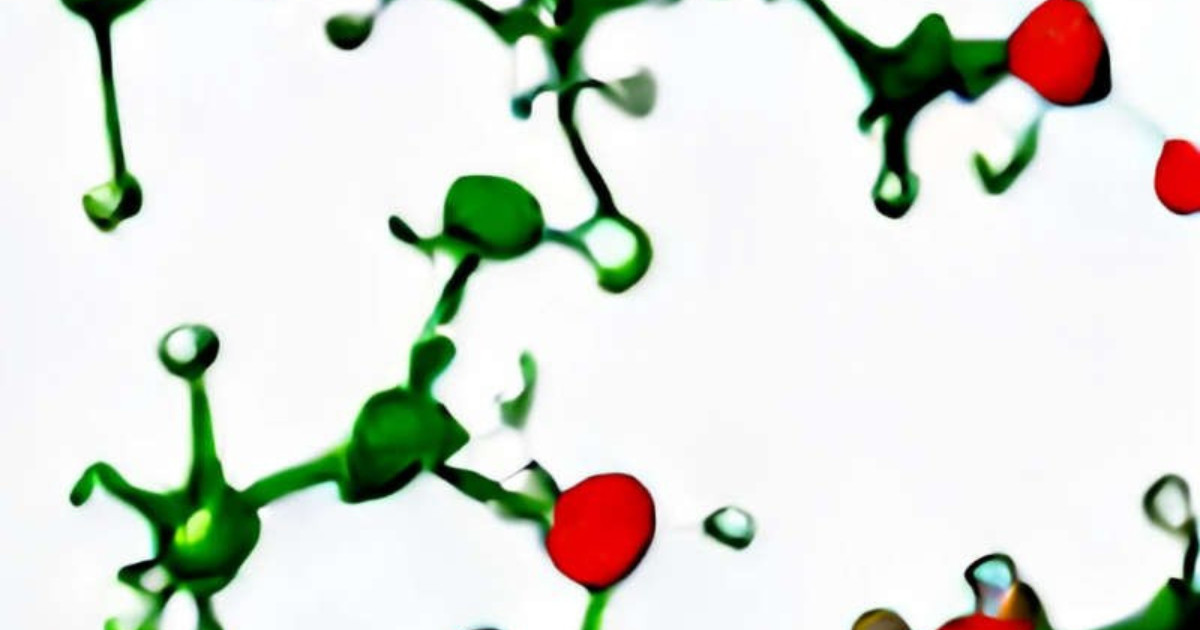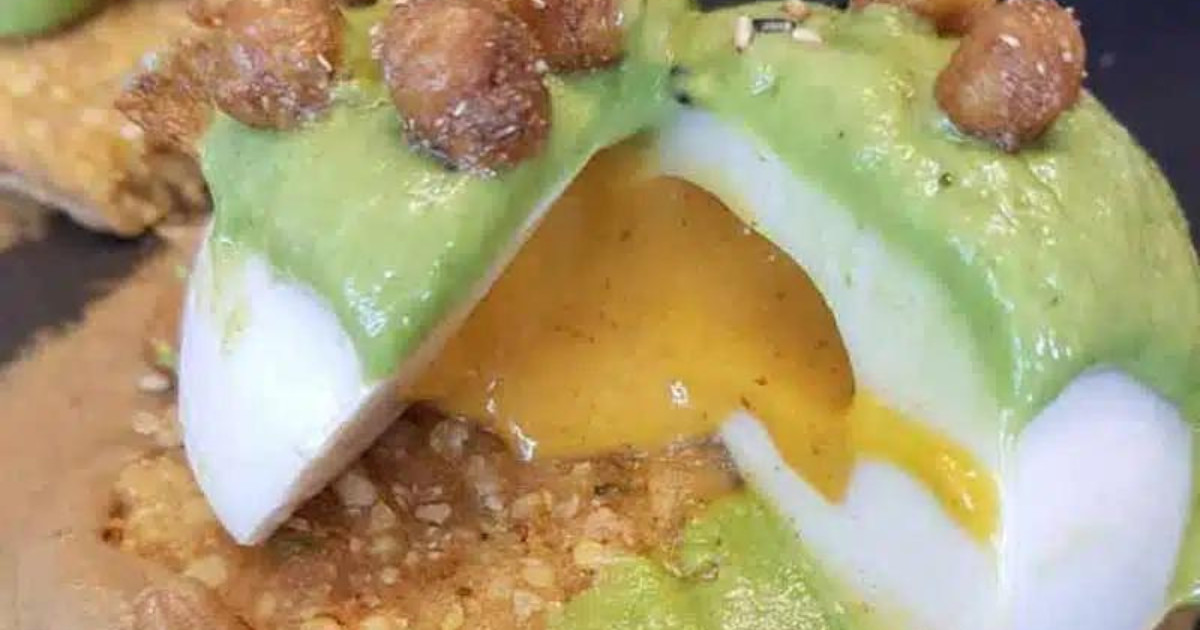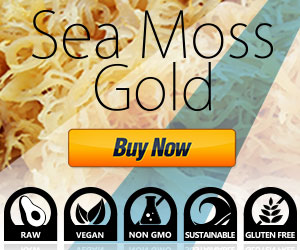As you ponder the question ‘Is there collagen in seaweed?’ you are most likely aware that collagen can be found in animal based products.
Looking for alternatives to bone broth or other concoctions made from bovine offal, the carcasses of starved fish or anything else that may make your stomach churn to get collagen is not completely pointless. 1
There are plant based alternatives to stimulating your collagen levels. We’ll take a closer look at some of these below.
Table of Contents
Is there Collagen in Seaweed?
The question ‘Does seaweed have collagen in it?’ has been rolling around online for a few years that I know of. The short answer is ‘No. There is no collagen in seaweed’.
The long answer is that there are collagen-stimulating properties that certain seaweeds provide to our bodies. 2
There’s a bit more to unpack in that response, so let’s take a closer look at the topic.
If you’re looking for seaweed collagen benefits there are a few things that we need to get straight first.
There are more and more cosmetic and supplement products that claim to have plant-based marine collagen or vegan collagen in them. It is worth looking at these more closely to be suitably informed.
Does Seaweed Help Collagen Production?
Although there is no Collagen in seaweed, there are properties in certain species of seaweed that support maintaining healthy collagen levels.
Eucheuma cottonii extracts, along with Nigella sativa extracts have been studied to evaluate their effectiveness in reducing the impacts of rheumatoid arthritis and osteoarthritis. Interestingly, the data showed that the Nigella sativa performed better than the Eucheuma cottonii under the conditions. 3
The relevance of this study with subjects suffering from rheumatoid arthritis and osteoarthritis is that healthy levels of the right types of collagen in the body play a part in reducing the effects of these. 4
The direct links to tissue regeneration expressed in the data where wound healing was monitored in line with the application of Eucheuma cottonii provided results where wound contractions over 15 days were very clear. 5
Fact 1 – Some Seaweeds can Stimulate Collagen Production
Other than Eucheuma cottonii, many seaweeds are capable of stimulating collagen in humans. That’s not to say that there is collagen in seaweed species like these, they simply help to stimulate what is already present in our bodies.
Another seaweed that has been studied for these properties is Pyropia yezoensis. 6
Studies on the functional cosmetic properties of Pyropia yezoensis to stimulate collagen synthesis were observed in several areas. It was also noted that the seaweed helped to reduce melanin and improve overall skin brightness. 7
Fact 2 – Polysaccharides in Seaweed Support Collagen Formation
The presence of fucoidans, ulvans, and laminarins in certain macroalgae (seaweeds) is what has been attributed with the ability of the body to stimulate collagen formation and block the degradation of collagen enzymes.
But here’s a curious development in macroalgae research. In his research, Ian Jameson identified that… 8
…collagen amino acids were found to be present in relatively low quantities [in certain macroalgae], insufficient for commercial production.
Ian Jameson (2021) 9
Polysaccharides are attributed as being the most beneficial and significant compounds in macroalgae concerning skin health. 10
So it is an arguable point that there isn’t collagen in seaweed, at least not enough to be commercially viable, per Ian Jameson’s research with the CSIRO. The presence of fucoidans, ulvans, and laminarins is what commercial skincare product opportunities appear to be found in.
Is Seaweed Collagen Healthy?
As stated by Ian Jameson, there isn’t sufficient collagen in seaweed to make commercial production viable. However, the question of collagen in seaweed being healthy could be reframed to consider the scope of health considerations around the use of polysaccharides.
It is understood that excessive reactive oxygen species (ROS) can increase the risk of complications of various diseases including those categorised as neurodegenerative, cardiovascular, and cancer. The research attributes this to the limited antioxidant defences in the body.

Through harnessing the antioxidant power of polysaccharides there is hope that complications arising from excessive ROS can be controlled more effectively. 11
Fact 3 – Carrageenan is not Poligeenan
For all of the chatter going on around carrageenan being unsafe for human consumption, there is a troubling oversight in the research. The lack of clarity on what was being tested by Joanne Tobacman reasonably suggests that the attribution of findings of studies on Poligeenan were attributed to Carrageenan. 12 13
Poligeenan is a substance that does not occur naturally. It is manufactured through a very specific process. Further studies underlining the confusion between Carrageenan, Degraded Carrageenan, and Poligeenan have highlighted the confusion and described the basis as being erroneous misuse of the name Carrageenan. 14
While Carrageenan occurs naturally in various species of seaweed and has been approved for use in the food industry for a very long time. 15
The addition of carrageenan to foods and other products presents no safety risks that have been identified in multiple peer reviewed studies. The value that is found in carrageenan from a dietary perspective is that it is an insoluble fiber; a long-chain polysaccharide. This means it is able to be considered an effective form of prebiotic as humans don’t possess the necessary enzymes to break the glycosidic bonds. 16
Conclusion
In conclusion, there is no collagen in seaweed, at least not enough to make any real difference from a commercial perspective. But that is not to say that you can’t benefit from the collagen stimulating properties found in seaweed.
For more information about collagen in seaweed, check out:
Oh, for those who have check out the URL for this article and had a ‘Huh?’ moment, this is where the Vegan Poached Eggs come in. The Chef who made the Vegan Poached Eggs that inspired this article was at Matcha Mylkbar Café in St. Kilda.
He explained how he used Sea Moss made into a Gel to make them. Small world. FYI – they were amazing!
References
- “Development of fish collagen in tissue regeneration and drug delivery” – M. Furtado, L. Chen, Z. Chen, A. Chen, W. Cui, 18 April 2022 [ScienceDirect] [Archive] ↩︎
- “Treatment of human skin with an extract of Fucus vesiculosus changes its thickness and mechanical properties” – T. Fujimura, K. Tsukahara, S. Moriwaki, T. Kitahara, T. Sano, Y. Takema, January 2002 [PubMed] [Archive] ↩︎
- “The effect of nigella sativa and eucheuma cottonii in collagen-induced arthritis mice” K. S. Saidin, M.R. Jais, E.N. Ismail, R. Ishak, January 2020 [UniKL] [Archive] ↩︎
- “What is collagen?” Versus Arthritis, Last Checked 28 November 2022 [Versus Arthritis] [Archive] ↩︎
- “Wound healing properties of Eucheuma cottonii extracts in sprague-dawley rats” S. G. Fard, R. T. R. Tan, A. A. Mohammed, G. Y. Meng, S. K. S. Muhamad, K. A. A. Jashamy, S. Mohamed, 20 January 2011 [ResearchGate] ↩︎
- “Pyropia yezoensis” M. S. Hwang, H. G. Choi, 3 September 2012 [WoRMS] [Archive] ↩︎
- “Extracts of red seaweed, Pyropia yezoensis, inhibit melanogenesis but stimulate collagen synthesis” J. Park, H. Lee, S. Choi, L. K. Pandey, S. Depuydt, J. D. Saeger, J. T. Park, T. Han, 6 May 2020 [ResearchGate] ↩︎
- “Mr. Ian Jameson – Profile” I. Jameson, Last Accessed 29 November 2022 [CSIRO] [Archive] ↩︎
- “The algae and seaweed opportunity: An Australian prospect” A. Spencer, March 2021 [Agrifutures] [Archive] ↩︎
- “Seaweed-Based Molecules and Their Potential Biological Activities: An Eco-Sustainable Cosmetics” H. S. Kalasariya, V. K. Yadav, K.a K.Yadav, V. Tirth, A. Algahtani, S. Islam, N. Gupta, B. H. Jeon, 1 September 2021 [PubMed] [ Archive] ↩︎
- “A Critical Review of the Abilities, Determinants, and Possible Molecular Mechanisms of Seaweed Polysaccharides Antioxidants” Z. Liu, X. Sun, 21 October 2020 [MDPI] [Archive] ↩︎
- “What You’re Getting Wrong about Carrageenan” E. M. Camellia, 31 January 2018 [Medium] [Archive] ↩︎
- “Clarifying the confusion between poligeenan, degraded carrageenan, and carrageenan: A review of the chemistry, nomenclature, and in vivo toxicology by the oral route” J. M. McKimI, J. A. Willoughby Sr. ,W. R. Blakemore, M. L. Weiner, 16 November 2018 [Taylor and Francis Online] [Archive] ↩︎
- “Addendum to Weiner, M.L. (2016) Parameters and Pitfalls to Consider in the Conduct of Food Additive Research, Carrageenan as a Case Study. Food Chemical Toxicology 87, 31-44″ M. L. Weinera, J. M. McKimb, W. R. Blakemore, 18 April 2017 [ScienceDirect] [Archive] ↩︎
- “Carrageenan” The Food and Agriculture Organization of the United Nations, Last Checked 29 November 2022 [FAO] [Archive] ↩︎
- “On the Health Benefits vs. Risks of Seaweeds and Their Constituents: The Curious Case of the Polymer Paradigm” J. Cotas, D. Pacheco, G. S. Araujo, A. Valado, A. T. Critchley, L. Pereira, 19 February 2021 [MDPI] [Archive] ↩︎
Last Updated on 2 months by D&C Editorial Team





Vegan eggs? Really? Now I’ve seen it all ?
I know, Beck!
This was a new one for me too. Tell you what, the toasted chickpeas are very yummy!
How do you make the vegan eggs?!
Hello Serena,
Thank you for your question. We have been swamped with requests in the last eight months or so and this is on the list. I’m hoping we will have a recipe out soon. Stay tuned 🙂
HI Matthew! Do you wash the sea moss gel off your face? Or just apply a little and leave it on? If so is it under your moisturizer? Thank you!
Hello Georgina,
I apply the gel directly to my skin after washing, I make sure my skin is simply clean and dry, and that is all I use. If you find that your skin is drier than usual and you feel you need moisturiser too, try using this before or after the Sea Moss gel to see what works best for you. I would be keen to hear back about your findings and which you prefer.